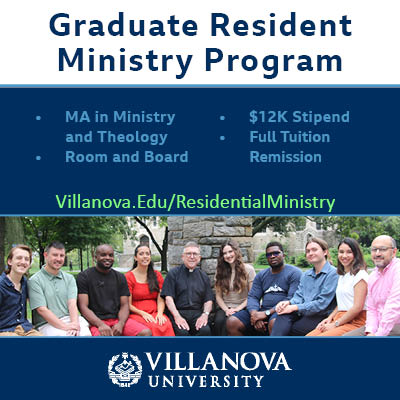By Alyssa Sickle, Executive Assistant and Events Coordinator
Chris Morgan is the first Colorado Vincentian Volunteer to work at his two placement sites, Cooking Matters and Slow Food Denver. CVV program directors Mary Frances and Bill Jaster recognized his interest in food education and proposed these sites to him as potential placements. Chris says that he has seen the fruitful results of God using his passions during this volunteer year.
At Cooking Matters, Chris coordinates six-week cooking and nutrition courses led by chefs and nutritionists to teach people how to cook and shop on a budget. At Slow Food Denver, Chris facilitates garden programming with elementary school students, which includes a youth farmers market and the Garden to Cafeteria program, in which local gardens cared for by students sell their garden produce to the school cafeteria.
“Slow food” has emerged as a movement centered on preserving local eating and agricultural traditions, maintaining a connection to the land and people who grow the food, and emphasizing the nutritional and cultural impact of clean, fresh-from-the-earth food. Slow Food is an international organization begun in Italy in response to the industrialization of food. The vision statement of Slow Food USA reads, “Food is a common language and a universal right. Slow Food USA envisions a world in which all people can eat food that is good for them, good for the people who grow it and good for the planet.”
Chris comments more on his view of slow food: “We are focused on promoting positive food relationships. For my work, that means tasting cucumbers right after they are picked off the vine. I think slow food is about honesty and dignity. It has to do with an ethical way of going about relationship with the earth, food, the people who prepare it, and the people we eat it with.”
Chris reflected on a few more questions about his volunteer ministry:
How do you see food education to be a reflection on faith values?
I see this as a reflection on faith values because stewardship is central to our primordial story. God gave humankind dominion over the earth. We are charged with being good stewards of this place. Clearly the contemporary industrial agricultural system does not meet that calling on several fronts. It seems clear to me that active support of ethical methods of raising produce and animals is at the basis of how we are called to interact with the earth as children of God. We all need to eat. Giving people the tools and the knowledge for producing, shopping for, and preparing food truly brings us closer to that calling of stewardship.
Can you share an interesting story from your work at your placement site?
By far the most common question I get in the garden is, “Can I eat this, Mr. Chris?” I try to say yes as much as possible. These second grade friends of mine typically don’t know what is edible or are unsure whether or not they have permission to eat what they pick. These boys and girls are tasting every vegetable out there and mostly enjoying them. Students become attached to their garden through the work they do there, the fun they have, and the food they eat. I dream that they will graduate from the school with the passion to grow their own produce in their own yard.
How have you been changed through this experience?
This experience so far has shown me a lot of different ways I can work in urban agriculture in Denver. It has opened my eyes to the deep need for food in the food deserts that we find all across our city. I have seen how dignifying it can be to produce one’s own food, and it inspires me to spread that. I would love to see more Catholic churches and schools farming on their land. I think it would be a deep source for theological reflection. My desire to pursue urban agriculture has been solidified through this experience! The fruits are there, and it’s beautiful to see God working in my life and the lives of those around me!



 Thousands of faith-based service opportunities can be at your fingertips with the RESPONSE. Download the latest edition today!
Thousands of faith-based service opportunities can be at your fingertips with the RESPONSE. Download the latest edition today!
